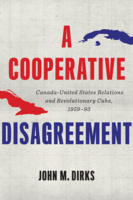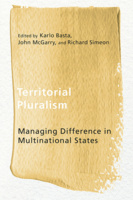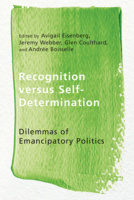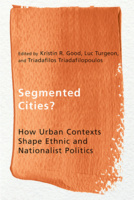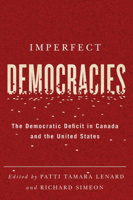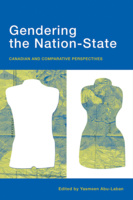A Cooperative Disagreement
Canada-United States Relations and Revolutionary Cuba, 1959–93
Agree to disagree? A Cooperative Disagreement demonstrates how Canada and the United States – neighbours by geography and close allies by design – successfully kept their differences over revolutionary Cuba from permanently damaging their relationship.
The Motivation to Vote
Explaining Electoral Participation
An original, parsimonious, and elegant explanation of why we vote or abstain in elections.
Territorial Pluralism
Managing Difference in Multinational States
This volume examines the implications of territorial pluralism for the peaceful and democratic management of difference in states characterized by ethnic, national, linguistic, or cultural divisions.
Comparing Canada
Methods and Perspectives on Canadian Politics
This book examines how political scientists apply diverse comparative strategies to better understand Canadian political life.
Recognition versus Self-Determination
Dilemmas of Emancipatory Politics
This book re-evaluates the role of recognition in analyzing relations between groups in plural societies, the position of indigenous peoples in settler societies, and the principle of the self-determination of peoples.
Segmented Cities?
How Urban Contexts Shape Ethnic and Nationalist Politics
This book examines how urbanization and pluralization are shaping the world’s cities and what can be done to encourage integration and minimize ethnic and nationalist tensions.
Imperfect Democracies
The Democratic Deficit in Canada and the United States
This timely book evaluates and compares alleged democratic deficits in Canada and the United States and proposes solutions to remedy them.
Faith, Politics, and Sexual Diversity in Canada and the United States
While acknowledging differences between Canada and the United States in their political responses to religion and sexual diversity, this volume moves beyond stereotypes to pose larger questions and reveal surprising changes at the intersection of faith-based and LGBT rights claims.
Unsettled Legitimacy
Political Community, Power, and Authority in a Global Era
This ground-breaking work explores how the unsettling of legitimacy has affected the relationships between authority, power, and political community in local, regional, national, and global settings.
Gendering the Nation-State
Canadian and Comparative Perspectives
Gendering the Nation-State explores the gendered dimensions of a fundamental organizational unit in social and political science – the nation-state.
The Comparative Turn in Canadian Political Science
This volume is the first sustained attempt to describe, analyze, and assess the “comparative turn” in Canadian political science.
Rethinking Federalism
Citizens, Markets, and Governments in a Changing World
Interdisciplinary in approach, this volume explores federalism in the 1990s, bringing together leading scholars from law, economics, sociology, and political science to comment on federalism's strengths, weaknesses, and potential in a variety of contexts.
Relocating Middle Powers
Australia and Canada in a Changing World Order
This book examines how two middle powers, Australia and Canada, are grappling with the difficult process of relocating themselves in the rapidly changing international economy.

